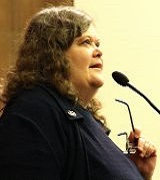(full-year grad course, potentially to be cross-listed as undergraduate course)
At the age of sixteen, a master at King Edwardís School in Birmingham lent Ronald Tolkien an Anglo-Saxon primer, which he devoured with enthusiasm before turning to the reading of Beowulf, then Middle English, then Old Norse, and then Germanic philology as a subject of some fascination. And then he turned to inventing languages. In this course, we will study Old English as Tolkien did, beginning with introductory short prose texts, then some of the shorter poems, and then Beowulf, always comparing our approach to Tolkienís, and the primer and reader that he used with our own introductory texts. When we get to Beowulf, we will read his landmark Gollancz Lecture from 1936, which arguably turned the study of the poem from the quarrying philologists and archaeologists, and towards scholars of literature and culture. We will briefly consider the other poems which Tolkien addressed in his scholarly role as Rawlinson and Bosworth Professor of Anglo-Saxon in the University of Oxford, before turning to the works that Tolkien wrote himself, inspired by the medieval texts he studied professionally. We will read The Hobbit and The Lord of the Rings, and consider their reception during and after Tolkienís life, and will delve somewhat into Tolkienís own compositions in Old English, and his other engagements with Anglo-Saxon matters.
|
|

